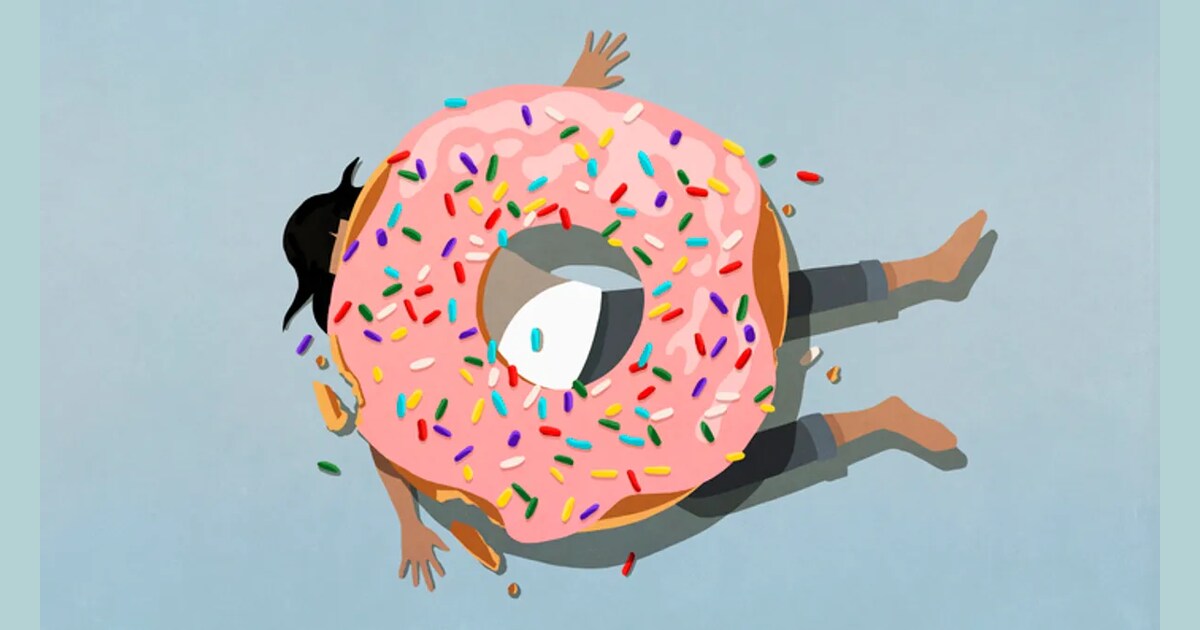As Halloween approaches, many are gearing up for a sugar-filled celebration. However, indulging in too much candy too quickly can lead to what experts refer to as a “sugar hangover.” Let’s learn more about it!
What Is A ‘Sugar Hangover’?
This phenomenon, which can leave you feeling worse than a traditional hangover, occurs when excessive sugar intake sends your body on a rollercoaster ride.
When you consume candy and other sugary treats, the processed sugars swiftly flood your stomach and are broken down into glucose, the body’s primary energy source. This glucose is absorbed by the stomach and small intestine, leading to a spike in blood sugar levels.
In response, the pancreas releases insulin to transport sugar from the bloodstream into cells for energy. This process can create a temporary burst of energy, often referred to as a “sugar rush,” though its validity is debated. Sugar also activates the brain’s reward system, releasing the feel-good neurotransmitter dopamine, providing pleasure and satisfaction.
However, overindulgence in sugar can lead to a “sugar hangover.” Excessive sugar intake causes the pancreas to produce an excess of insulin, leading to a dramatic drop in blood sugar levels. This is particularly risky for individuals with pre-diabetes, type 2 diabetes, or polycystic ovary syndrome. The result can include shakiness, fatigue, dizziness, headaches, and brain fog. In some cases, diarrhea may occur, as sugar draws water into the gut, causing loose stools. Unabsorbed sugar in the bowels can ferment, leading to gas, bloating, and cramping.
If you prefer liquid sweets like sodas or milkshakes, you’re likely to experience a sugar hangover more quickly, as these are rapidly digested without the need for breakdown by the digestive system.
To enjoy sweet treats without feeling terrible, experts offer some strategies. One key approach is to have a balanced meal rich in protein, fiber, and fat within an hour before indulging in sugary snacks. This can significantly slow down the absorption of glucose.
If you don’t have time for a meal, consider choosing sweets that contain other nutrients, such as peanut M&M’s or a Snickers bar, which can help balance the sugar intake.
Moderate exercise after consuming a significant amount of sugar can also be beneficial. Your muscles will utilize the sugar for energy, reducing the insulin spike that contributes to hangover-like symptoms.
While occasional indulgence during the holiday season is encouraged, regular consumption of sugary foods may lead to increased cravings. Pathogenic bacteria in the gut also thrive on glucose, potentially blocking the production of serotonin and dopamine, which can contribute to long-term mental health issues.
Halloween candy can indeed lead to a “sugar hangover,” but with some dietary and lifestyle adjustments, you can still savor sweet treats without the unpleasant aftermath.








Leave a Reply
You must be logged in to post a comment.